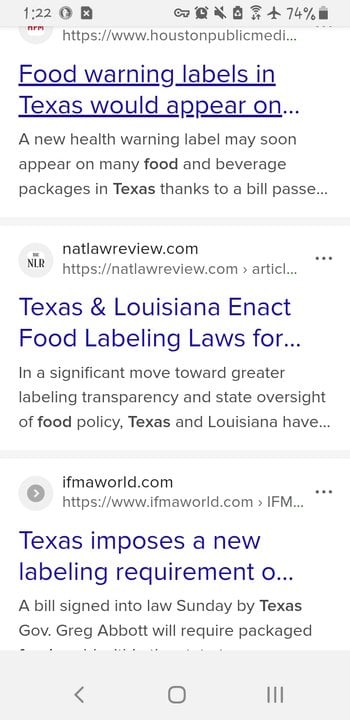@
Bang5luts Thank you for those references.
So two States; but the law seems only to enforce
information labels,
not ban the foods, in those States.
Full labelling laws, in principle,
are common in many countries. Typically the label has as far as practicable, to list the ingredients, highlight allergens like gluten and nuts, and give basic nutritional details (sugar, salt and fats proportions, and energy value).
Those are not about "banning" the foods in America, just telling the manufacturers to allow the buyers to know what they are eating.
However, reading the reference Ninalanyon cites elsewhere on this thread shows a lot of popular US-made snack foods are banned in EU, Japan, the UK and some other countries for potentially harmful ingredients (mainly certain vegetable-oil products, and dyes).
Following another thread on food safety recently, I examined a range of products in my own kitchen; from both supermarkets and independent shops, so a fair spread. None, even the part-cooked ready-meals, contained anything unnecessary, let alone potentially harmful. That thread was about a vegetable-oil product apparently commonly used in the USA, but none of what I had bought held those; and in fact contained nothing untoward.
I also noticed the infamous "E Numbers" seem to have dropped out of use, at least on products sold in the UK. Although intended as simple, coherent, international abbreviations for secondary ingredients such as binders, preservatives, colours and flavour-enhancers, unfortunately they frightened and baffled buyers. Instead the manufacturers name these ingredients directly. More importantly they have also responded to demands to cut needless additives, in some cases as simple as excess sugar and salt. Let alone artificial colours and flavours.





